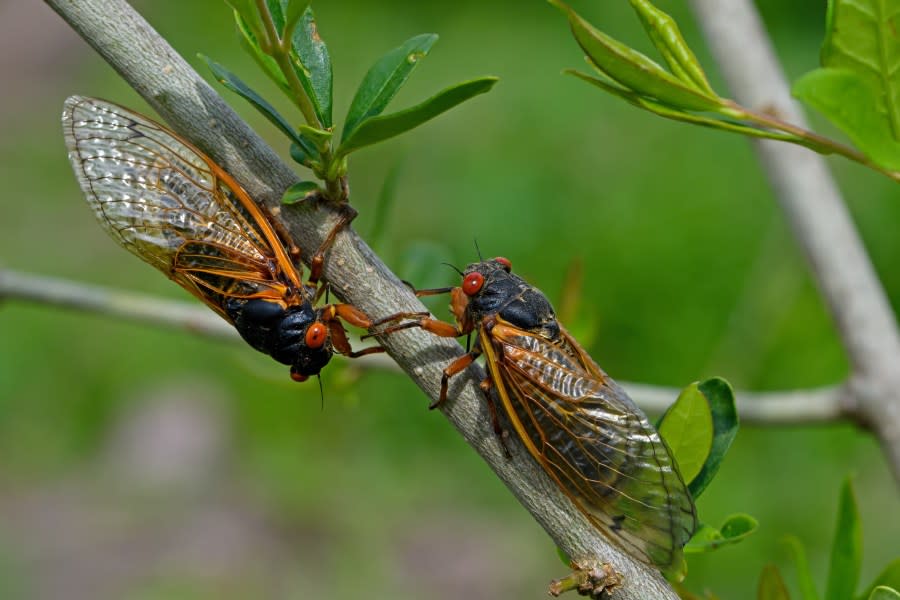Can cicada drones drown out tinnitus? UIUC researcher explores

URBANA, Ill. (WCIA) — The familiar cicada chirps of a Central Illinois summer are set to become twice as loud this year with a rare double-emergence event. What may be a nuisance for some is providing the perfect opportunity for one University of Illinois researcher to explore the relationship between the noise and certain auditory conditions.
The mating call of male cicadas are largely the cause behind that notable, bright droning sound. It is produced by their vibrating abdominal muscles. Most female cicadas make simple clicking noises with their wings instead.
Cicadas: When are they the loudest?
Fatima Husain is a professor of speech and hearing science at the University of Illinois Beckman Institute. She has researched conditions like tinnitus and hyperacusis for 20 years.
Tinnitus is the perception of sound that may not really be present outside the brain. Most people experience this as ringing in the ears, even relating it to a droning cicada call. However, those with tinnitus can also perceive buzzing or whooshing noises.
Husain said that in the eastern U.S.’s 2004 and the 2021 cicada emergences, several people claimed the frequencies and loudness of the cicadas actually drowned out the sounds of their tinnitus. However, once the noise went away, the tinnitus would return.
This experience may not be the same for everyone with tinnitus, Husain noted. The effectiveness of masking tinnitus sounds largely depends on the type of sounds perceived and the sounds produced externally. Based on these factors, some people’s tinnitus may actually worsen in response to cicada chirps.
Protecting pools from cicadas: What to do when they end up in water
People with hyperacusis, or the sensitivity to the loudness of everyday sounds like vacuum cleaners or lawn mowers, may also be bothered by the wall of cicada noises this summer. Husain said cicadas are capable of reaching 90-110 decibels — as loud as a jet engine.
Even at this staggering volume, Husain doubts hearing loss would occur unless one stands roughly three feet from a ton of cicadas for several hours. But if you still want to save your ear drums — or at least your sanity — Husain suggests either wearing ear protection, playing some music through headphones, or standing about 12 – 24 feet away from trees harboring cicadas.
Husain also notes that the hotter the day, the louder the cicadas will be. So, she said the best solution of all may just be to head indoors to muffle the noise, enjoy cool comfort, and wait for it all to be over in around six weeks.
Copyright 2024 Nexstar Media, Inc. All rights reserved. This material may not be published, broadcast, rewritten, or redistributed.
For the latest news, weather, sports, and streaming video, head to WCIA.com.

